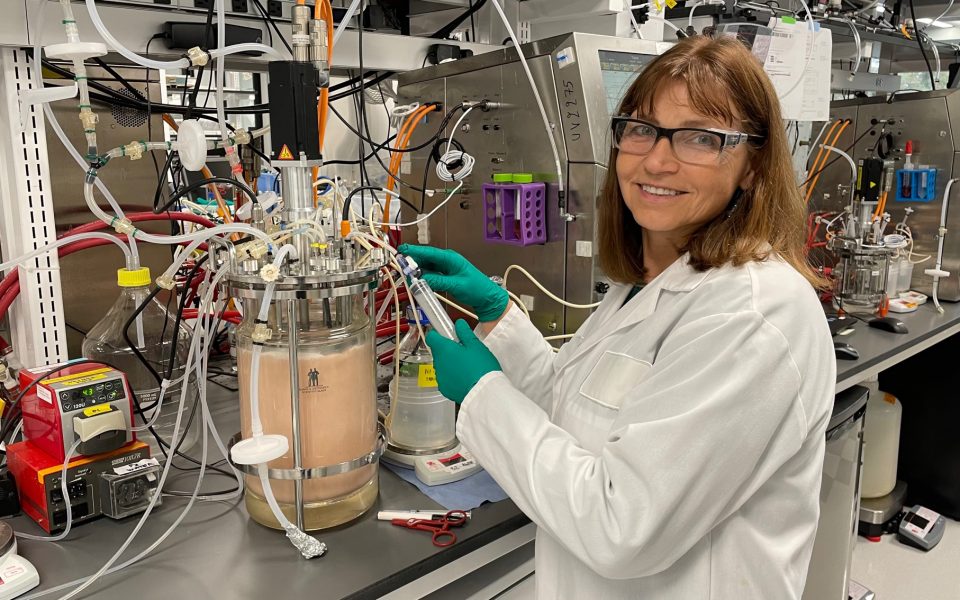Get to know Yelena Stegantseva, Ph.D, Director of Fermentation Development at Calysta
What drew you to your role at Calysta?
Calysta’s mission sounded so cool – it was an interesting story to tell my friends. Creating more from less is inspiring to me. By fermenting methane to create new feed and food products, Calysta is creating sustainable, high value nutritional ingredients – it’s almost like producing something from thin air.
With FeedKind, we solve the problem of using fish to feed another fish which then is eaten by people. It’s really important, I think.
How did you get started in the industry? What did you study and what was your first job?
I’ve always been interested in engineering, so I studied it at university. I loved science and followed my interest, getting my first job in Latvia, before moving for work in the USA. Years have passed, I’ve changed countries and the processes are different – but the challenges of fermentation are the same: producing a higher yield to make your product more cost-effective.
What have been your highlights or proudest achievements whilst working at Calysta?
A proud moment for me was leading the technology development and subsequent implementation at our UK facility. I’m also proud to have gained a lot of experience while working in fermentation over the years. The whole process started as theoretical calculation and experimentation but is now deeply studied by me, meaning I know exactly which button to press or chemical element to add to navigate biomass composition during fermentation.
What most excites you about Calysta’s technology?
The technology is very elegant. We run continuous fermentation to deliver a product with consistent characteristics. We also use a defined medium in a closed circuit process, allowing recycling of the medium and a negligible waste stream.
If you were stuck on a desert island and could only have with you one book, one movie and one album, what would they be?
I would take the book “Joseph and His Brothers” by Thomas Mann, the movie “Fanny and Alexander” directed by Ingmar Bergman, and for music, Adele’s latest album, “30”.
Who most inspires you?
I believe you can learn something from every single person you meet, as all people are complex creatures with their own stories and experiences. I like to build-up ideals from different features of my friends, my relatives, and historical figures.
What’s the best piece of advice you’ve received during your career?
Unfortunately, I’ve found that people (myself included) often listen to advice, then fail to apply the learnings if they haven’t gone through the experience first-hand. Therefore, my advice is to always learn from your mistakes!
What would you say to a young woman wanting to pursue a career in food science or biotechnology?
Go for it! This industry is much more than a job which will pay bills – it’s interesting and exciting to be working on innovative, world changing technology. Throughout my career, I’ve always followed my interests. I mixed highly technical and “dry” engineering with “live objects” microorganisms, meaning I found my niche.
In the past, I worked as the only woman in an all-male team. However, things are changing, and I was recently proud to be part of an all-female team made up of a group of amazing scientists. We brought a different approach to the work, using the team’s skills to pull together scrupulous data collection tables, which allowed us to analyse the results and see the impact of small changes. This technique helped us quickly find a vector of process optimization, changing the way we work moving forward.
Great teams need diversity and talent, bringing together different experiences, strengths, and perspectives, but all united over a shared goal. All you need to succeed in STEM is a passion for innovation and a willingness to learn.

